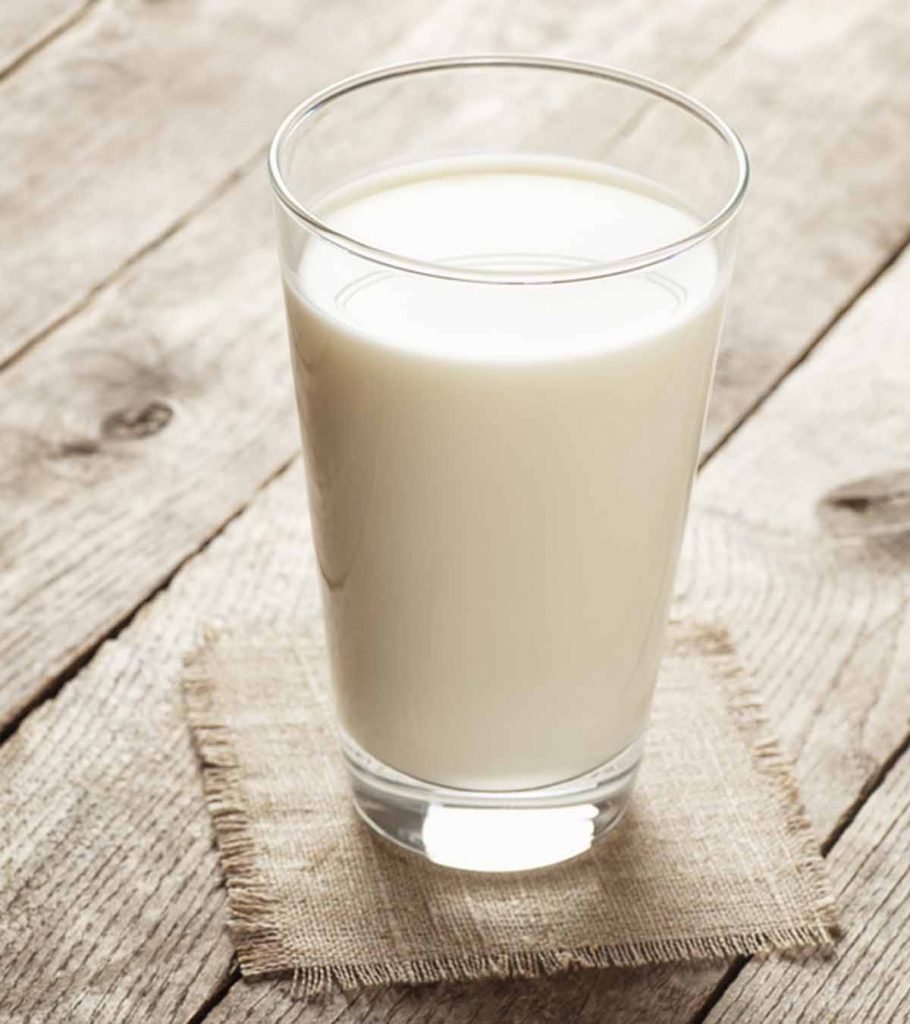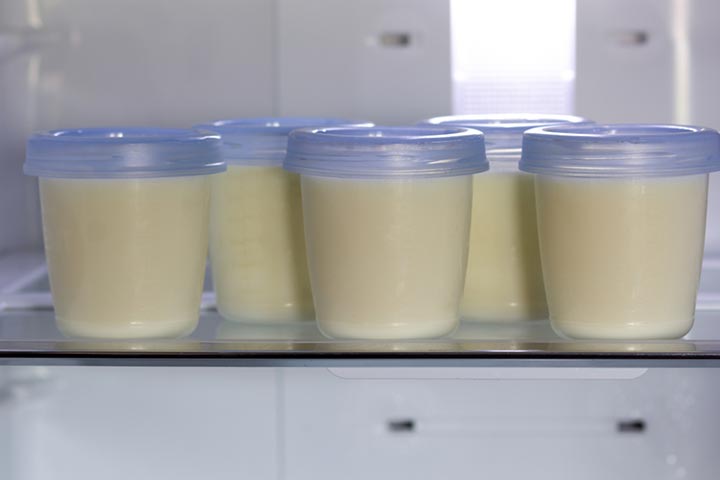While it is a well-established fact that breast milk is the best form of nutrition for infants, have you ever wondered what does breast milk tastes like? Many women often ponder the question to determine if their baby is getting healthy breast milk. It is also believed that changes in breast milk’s taste may affect the breastfeeding baby’s appetite.
This post carries answers to your questions regarding breast milk’s taste, factors affecting it, and whether it is okay for you and your partner to taste breast milk.
What Does Breast Milk Taste Like?
If you are wondering about breast milk’s characteristics, it is creamy and tastes sweet. It is a lot similar to cow’s milk. This interpretation, however, varies from person-to-person. Some people find breast milk’s flavors to be heavily sweetened, almost like honey or sugar water, while others recall it being sweet-salty.
Whatever the perceived taste, the vital point to note is that breast milk does have a peculiar taste. But if that’s the case, you may wonder how does breast milk gets its taste? Let us proceed to the next section to find out breast milk’s composition.
What Gives Breast Milk Its Taste?
The innate taste of human milk depends on its constituents. If the taste factors of breast milk are analyzed at a biochemical level, then its saltiness is mainly produced by sodium ions, sourness is produced by acids, and sweetness is attributed to sugars, mostly lactose. Umami is most frequently produced by free amino acids (1) (2).
However, its flavor is greatly influenced by what you eat during the lactation period. Evidence suggests that a mother eating a well-balanced diet containing foods from different food groups exposes her young one to varying flavors from a young age. It could impact your baby’s food choices later in life since they would be more likely to accept foods with a familiar taste (3) (4).
What Is In Breast Milk?
Breast milk contains about 87% water, 7% carbohydrate, 4% fats, and 1% protein along with many minerals and vitamins. Among proteins, it contains about 60% whey, and 40% is casein. Fats present in breast milk provide calories, help in brain development, and act as a medium for fat-soluble vitamins to reach the baby. Breast milk also contains cholesterol (a precursor of hormones and important for brain development) and is a great source of antibodies and immunomodulators (5) (6).
Factors That Affect Breast Milk Taste
Below are some of the significant factors that could affect the flavor of breast milk.
- Food: A baby may get their first taste of food flavors in the mother’s womb since the mother’s diet could affect the taste of the amniotic fluid (7). Babies get reintroduced to these tastes during breastfeeding when the mother eats the same food and drinks. In the beginning, the baby might not respond to these flavors amicably. But gradually, they develop a tolerance to it. Nevertheless, they may dislike a sudden change in breast milk’s flavor due to certain foods in the maternal diet. Experts note that strongly flavored foods, such as garlic and chili, may change the breast milk’s taste and smell (8) (9).
- Hormones: Hormonal changes postpartum are as obvious as they are during pregnancy. They can occur when your menstrual cycle returns. Hormonal changes could alter breast milk’s flavor temporarily. For instance, around ovulation, the sodium and chloride in breast milk increase, and the amount of lactose and potassium reduce, making the milk saltier (10).
- Alcohol: Consuming alcohol when breastfeeding exposes your baby to health risks as the alcohol passes to the baby through breast milk. Besides, it alters breast milk’s flavor and might cause sensitive babies to stop feeding temporarily (11).
- Smoking: Research shows that smoking when breastfeeding could affect breast milk’s taste (12). The alteration in the taste might affect sensitive babies, impacting their breast milk intake. Experts recommend quitting smoking during the lactation period.
- Medications: Several medicines might affect breast milk’s taste and smell, affecting the baby’s milk intake. Discuss with your doctor in detail the effects of any medication on your breast milk’s taste and baby’s health in general.
- Breast infection: Breastfeeding mothers often face breastfeeding problems, such as breast inflammation due to mastitis, which is a breast infection. Research notes that breast inflammation due to infections tends to make the breast milk salty (6).
- Breast milk storage: Expressed breast milk stored appropriately is safe for consumption. However, incorrectly stored breast milk could taste metallic or fishy (13). These changes indicate the milk has gone rancid and is unfit for consumption. Breast milk’s taste could also change when frozen. However, it is a normal change due to lipase, an enzyme in breast milk that breaks down the milk fat into fatty acids.
A mother of one, Kate shares her experience with storing breastmilk to discover an unusual smell coming off of it. She observes, “I have used frozen milk before with no problem, but this time something was different. I defrosted the bag in the refrigerator overnight and when I went to use it, it smelled GROSS. Not like spoiled milk, really, just… gross. Kind of plastic-y. And VERY strong…. I thought maybe the issue was with defrosting overnight, so I thawed another frozen bag in warm water. It smelled awful too. This time I tasted it, thinking that maybe it was just the smell of the plastic, but the milk was fine. Strangely enough, it was not spoiled. It tasted… off… but was not the smell of curdled or rotten milk. It tasted kind of salty, but generally like my milk normally tastes. Then I remembered reading something about lipase in the past.” She adds, “Since I tasted the milk and it didn’t seem spoiled to me, I gave it to Owen as some of his milk before bedtime (3 ounces out of the 6 or so he usually eats). He was a bit fussy while eating and didn’t eat quite as much as usual, but he did take it and then promptly fell asleep like normal. No weird spitting up or poop or gas issues to speak of, so I think I can assume that the milk was ok… So I’m operating under the assumption that the issue is lipase (i).”
Can Adults Consume Breast Milk?
An adult may try their or their partner’s expressed breast milk. You must avoid trying or letting your partner try breast milk if you can transmit any infection through it. Some people wish to try someone else’s breast milk, but doing so can be potentially dangerous since it could cause the transmission of dangerous pathogens, including HIV and hepatitis viruses.
What does breast milk taste like is a common question that might occur to many? However, it should be noted that the interpretation of the taste varies from one person to another. Several factors can affect the taste of breastmilk and alter its composition, such as food, health, hormones, or any form of sickness. Therefore, it is advised that nursing mothers should have nutritious food and take proper care of themselves to ensure that their baby is getting the right amount of nutrients.
Key Pointers
- Human milk tastes similar to cow’s milk, but interpretation may vary from person to person.
- Breastmilk’s taste primarily relies on its nutritional composition, which depends on the maternal diet.
- Postpartum hormonal changes, medications, breast infection, and breast milk storage are the additional factors that could affect breastmilk’s taste.
You may wonder what breast milk tastes like. Watch this informative video to understand how human milk tastes and how it differs from other types of milk.














